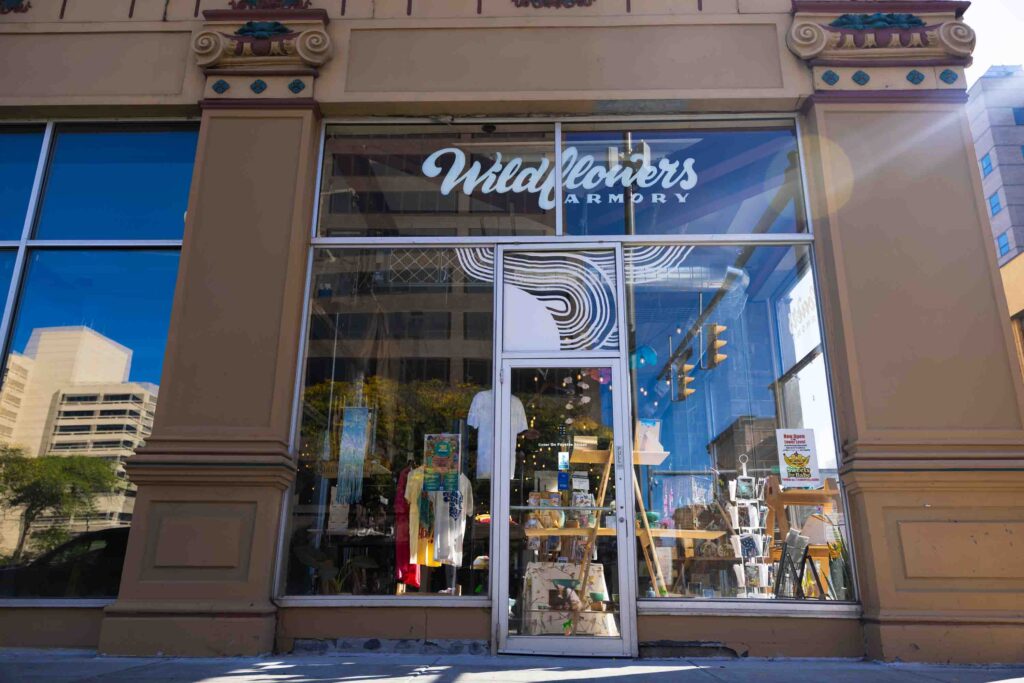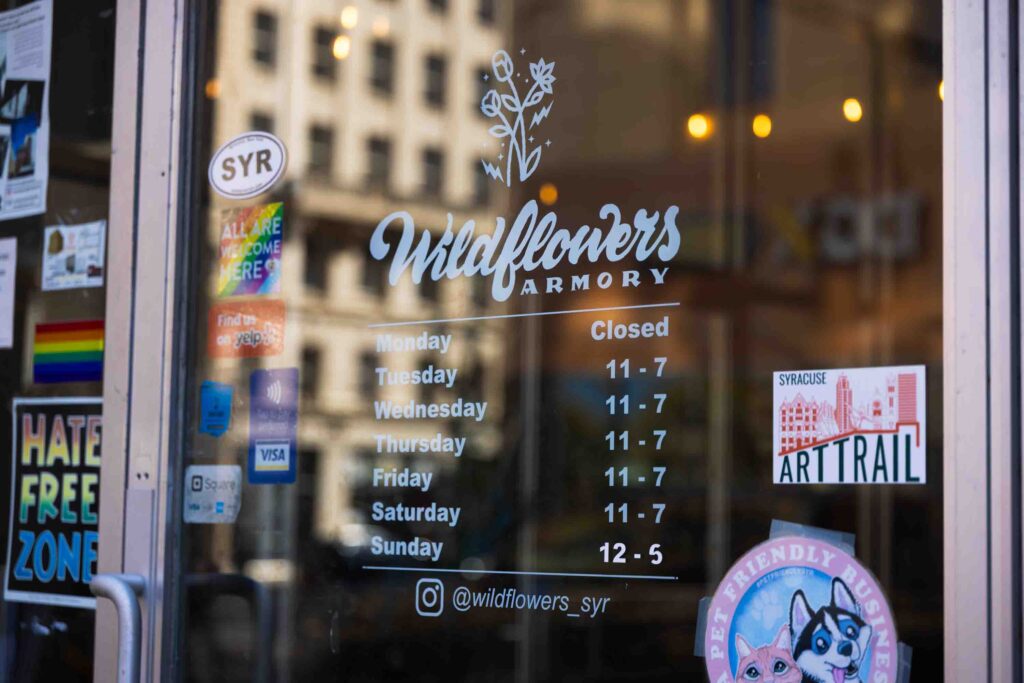Tariffs squeeze CNY artists, Syracuse’s Wildflowers steps in with support
Tariffs squeeze CNY arts, local store steps in
As the Trump administration’s tariffs lessen access to overseas materials, Wildflowers’ cooperative model and community outreach offer local artists stability and hope.

A roll of waxed canvas or a strip of bag webbing might not seem political. But for Syracuse artists, tariffs have turned ordinary supplies into pricier, harder-to-source materials.
“It’s sort of like somebody waved a magic wand in Washington (DC), and globally, everything just went up a level,” said Joseph vonSouder, Syracuse Art Store’s creative director.
Under the second Trump administration, higher tariffs on imported goods have gone into effect worldwide.
In Central New York, this included local thrift stores gaining more business locally, as well as restaurants.
For the art world, that means overseas vendors are raising prices or halting shipments to the U.S. altogether. It also affects items labeled “Made in the USA,” since many still depend on outsourced materials. Wildflowers, a multi-vendor marketplace in downtown Syracuse, is taking steps to support CNY artists through their struggles.
“The key to Wildflowers is that we all kind of chip in and work shifts and have a mentality that allows us to weather a lot of different hurdles of small businesses by kind of joining resources together,” Michael John Heagerty, owner of Wildflowers, said.
The Wildflowers business model has vendors working shifts to staff the store during the week in exchange for low rent and commission percentages. Vendors are charged 20% of sales compared to an average of 50-60% at other markets, Heagerty said.
Jennifer Tompkins, a Liverpool-based artist, has been making bags for 25 years and selling at Wildflowers for the past three. She is used to sourcing components for her purses all over the world, but all of that stopped two months ago, she said.
“I like to buy from two small overseas businesses, one in England and one in Austria,” Tompkins said. “One day I went to place another order and they said they were not shipping to the U.S. until this tariff thing is settled.”
Now, Tompkins has found U.S. suppliers to buy from. She doesn’t like the products as much, and it is more expensive, but she has no choice, she said. She has not had to raise the prices on her bags yet, but she expects to do so soon.

Tompkins expects U.S. suppliers to raise their prices further as the tariffs ripple through supply chains.
“It could be that the vendors absorb the additional tariffs, and it could be that they push them on to us. We’re in limbo, waiting for someone to make a decision on everybody’s part,” Tompkins said.
vonSouder’s store is already running into those issues. What many don’t realize, he said, is that the U.S. outsources key ingredients for materials made domestically.
For example, Lapis Lazuli is used to make ultramarine blue. That gets mined in Afghanistan and then sent to the U.S. to be milled into a pigment, added to a binder, and then packaged and sold as paint. There is nowhere to mine that mineral in America, so we are completely dependent on it being shipped overseas.
Because of this, there are some materials that aren’t available at all anymore. Some of the pre-made items that the store usually carried were one-of-a-kind materials that the local community has now lost access to.
“A lot of these things are made by families in villages that have been producing these patterns and papers for decades, if not centuries,” vonSouder said. “Tariffs were a huge loss in that we just couldn’t get them anymore.”
Amid the chaos, Wildflowers is trying to provide a stable space for its artists to thrive. Heagerty said Wildflowers has been working with artists to keep costs low for as long as they’ve been in business.
In response to rising prices, a Wildflowers board member is launching an “artist’s library” — a free selection of art supplies available in the main section of the store.
Though the future may look bleak, Heagerty advocates for hope and an optimistic outlook.
“There will always be something that stands between small business and making it maybe more difficult,” Heagerty said, “But these folks are so creative that they almost always find new ways to do what they do.”
